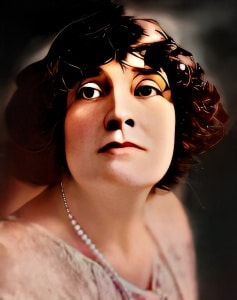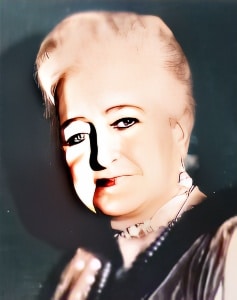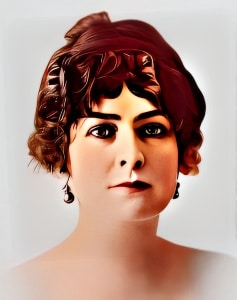 Eugenie Besserer was an American actress who made significant contributions to American cinema during the early years of film.
Eugenie Besserer was an American actress who made significant contributions to American cinema during the early years of film.
She was born on December 25, 1868, in Watertown, New York, and she had a long and successful career in both silent and sound films.
Besserer’s acting career began in the early days of silent cinema when she transitioned from theater to film. She quickly established herself as a character actress known for her versatility and ability to bring depth to her roles.
One of her early notable roles was in the 1915 film “ The Birth of a Nation,” directed by D.W. Griffith. In this controversial but influential film, Besserer played the role of Mrs. Cameron, a central character in the narrative. “ The Birth of a Nation” played a significant role in advancing filmmaking techniques and was one of the first feature-length films.
With the transition to sound in the late 1920s, many silent film actors faced challenges in adapting to the new medium. Eugenie Besserer, however, successfully made the leap to sound cinema, continuing her acting career in films with dialogue.
One of her sound film appearances was in the 1929 film “Alibi,” directed by Roland West and produced by the legendary Darryl F. Zanuck. This film was an early sound crime drama and is notable for its use of innovative sound technology.
Eugenie Besserer’s dedication to her craft and her contributions to the early years of American cinema are remembered as an important part of Hollywood’s history. Her ability to adapt to changing technologies and her talent as a character actress marked her as an important figure in the evolving film industry.
She continued to work in films until her retirement from acting. Eugenie Besserer passed away on May 28, 1934, marking the end of a career that played a crucial role in the early development of American cinema. Her work, particularly in iconic films like “ The Birth of a Nation,” showcases her talent and her role in shaping the early years of Hollywood.
Loading live eBay listings...




